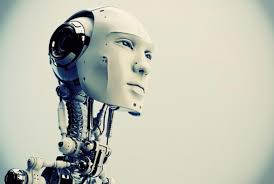
Breaking News
 How To Become Competent, Confident, and Dangerous, with guest Doug Casey
How To Become Competent, Confident, and Dangerous, with guest Doug Casey
 My Hot Take On Bill Gates' Climate Change Essay | Alex Epstein #457 | The Way I Heard It
My Hot Take On Bill Gates' Climate Change Essay | Alex Epstein #457 | The Way I Heard It
 Discussion on Covid Vaccination Should Be Non-Controversial
Discussion on Covid Vaccination Should Be Non-Controversial
Top Tech News
 HUGE 32kWh LiFePO4 DIY Battery w/ 628Ah Cells! 90 Minute Build
HUGE 32kWh LiFePO4 DIY Battery w/ 628Ah Cells! 90 Minute Build
 What Has Bitcoin Become 17 Years After Satoshi Nakamoto Published The Whitepaper?
What Has Bitcoin Become 17 Years After Satoshi Nakamoto Published The Whitepaper?
 Japan just injected artificial blood into a human. No blood type needed. No refrigeration.
Japan just injected artificial blood into a human. No blood type needed. No refrigeration.
 The 6 Best LLM Tools To Run Models Locally
The 6 Best LLM Tools To Run Models Locally
 Testing My First Sodium-Ion Solar Battery
Testing My First Sodium-Ion Solar Battery
 A man once paralyzed from the waist down now stands on his own, not with machines or wires,...
A man once paralyzed from the waist down now stands on his own, not with machines or wires,...
 Review: Thumb-sized thermal camera turns your phone into a smart tool
Review: Thumb-sized thermal camera turns your phone into a smart tool
 Army To Bring Nuclear Microreactors To Its Bases By 2028
Army To Bring Nuclear Microreactors To Its Bases By 2028
 Nissan Says It's On Track For Solid-State Batteries That Double EV Range By 2028
Nissan Says It's On Track For Solid-State Batteries That Double EV Range By 2028
Robots will soon match humans in creativity, emotional intelligence

An Australian AI expert, Toby Walsh, said during the Festival of Dangerous Ideas in Sydney recently that he thinks AI will learn and possibly match human traits like creativity, emotional intelligence and adaptability in less than 50 years. And Walsh — a Scientia Professor of Artificial Intelligence at UNSW Sydney — predicts robots will be as smart as humans by the year 2062.
But don't worry about them ultimately presenting some sort of threat or something as drastic as potentially wiping out mankind, he adds. "We've been rather mislead by this idea that the robots are going to take over," Walsh told Time Out. "The robots have no desires of their own, they do exactly what we tell them to. I'm much more worried about incompetence than malevolence – that we'll get the machines to do something and we haven't thought carefully about how it's going to interact with our complex world … Healthcare, transport, how we manufacture things, how we educate ourselves, how we go out and play — it's going to touch almost every aspect of our lives."

 Dark Tidings
Dark Tidings Carbon based computers that run on iron
Carbon based computers that run on iron

